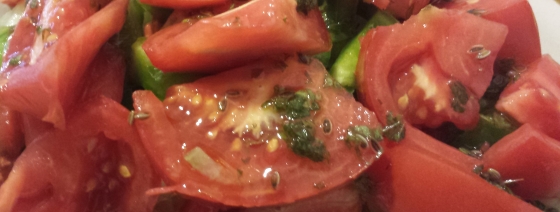
Marathon Magic Foods
When training for a marathon or any long run, nutrition can play a vital part in maximizing your performance. This article takes you through the basic foods of a runner's diet as well as performance maximizing foods and drinks.
Eat well, train well:
At the foundation of any runner's diet should be a balanced range of nutrients generally high in carbohydrates, low in fat and with moderate amounts of protein. Eating well should be part of your routine just as much as the training itself.
To maximize your performance as an athlete it is therefore important to make sure you are getting the right ingredients from your diet, and in the right quantities. This is a great way additionally to fight off infection, keep your energy levels high and sustain yourself throughout your training. Make sure that you fuel up before and after a run, preferably 2 hours before a long run to give your system enough time to digest the food fully and aim to refuel after a run as soon as is suitable.
Here are a few of my top foods for runners:
Greens (kale, broccoli, spinach, asparagus)
A great source of iron fuelling the body. Low iron restricts your body's ability to produce haemoglobin and thus reduces its oxygen carrying capacity. So your mum was right after all, eat your greens and become Popeye!
Beets
According to a study by M. Murphy et al, eating beets 75 minutes before a race can help you to improve your running performance by an average of 3% and as much as 5% in the last mile. This increase in performance is most likely due to dietary nitrate being converted to nitrite to nitric oxide thus requiring the muscles to use less energy.
Kiwis, tomatoes and red peppers
Packed full of vitamin C. They boost your immune system and fight off illness. Most colourful fruits should have high levels of vitamins in them so why not vary your fruit intake and every time you visit the supermarket try a new one. Some fruits and vegetables such as apples and red onions are rich in the antioxidant of quercetin which boosts muscle endurance.
Carbohydrates (pasta, potatoes, rice and cereal)
This is your body's main fuel and important energy foods for hard training. Look for foods with slow release energy instead of sugary snacks.
Seeds and nuts (almonds)
Many runners love eating these as they are easy to take with you when you travel and a great energy booster, packed full of the right kind of fats - Omega 3.
Eggs
A great source of protein, especially for those of us who are vegetarian. If you are not a fan of eggs try something like kidney beans (full of protein also).
Frozen vegetables and frozen fruits
Being frozen they are packed with the nutrients straight from the ground that may have been lost otherwise such as vitamin B and C and Beta Carotene as well as many other minerals.
Mixed salad leaves
Great for any meal, low in fat and tasty. This can be a great source of iron as well as a great variety of other minerals and vitamins depending on the leaf.Fish (E.g.-salmon)
As well as being great brain foods, fish have high levels of Omega 3 in them which reduces heart disease and can lower blood pressure.
Magic marathon food and drinks:
Here are a few extras that you can add to your diet when training just to give you that extra boost:
Bananas
A great source of magnesium, reducing muscle cramps.
Chocolate Milk
A source of Calcium and great recovery drink after a run.
Ginger and mustard
Strange but true these ingredients are great for muscle aches.
Green tea extracts
Packed with antioxidants which fight off infection. If you don't like green tea try white tea or a herbal tea like peppermint instead.
Herbs and spices
Herbs like rosemary have great anti-inflammatory properties whereas parsley, mint and coriander can be great for digestion and stomach cramps. Be sure to stock up on these. Try adding them to your cooking. So go on be adventurous!
Dietary supplements for runners:
Caffeine
Whether from your daily coffee or pill form caffeine is shown to boost performance levels.
Glucosamine and Condriotin
This supplement is used by many runners to help keep joints supple and cartilage at its best. Other great supplements along this line are iron, calcium and Omega 3 but it is preferable to try and get these from your general diet instead.
Carbohydrate drinks
These replenish glycogen stores during and after training if large drinks are hard to carry throughout the run, try gel packs.
Isotonic drinks
These replace minerals lost in training, through sweat (especially when it's hot).
So there we go readers, be adventurous and experiment with a good range of basic food substances! If you are not sure of the properties of some foods, look at the labels and don't be afraid to do a bit of research. With a healthier diet you'll feel more energized and happier so get cooking!
On a final note - don't forget to hydrate, hydrate!!! I can never remind you enough of the importance of getting enough water before, while and after training. It is so important for optimizing performance and preventing cramps and muscle aches by flushing out the toxins in your body built up from exercise. Water also cools the body down and can prevent exercise induced headaches.
Gemma Carter is a fully trained fitness and life coach. Visit her website at http://www.cartercoaching.co.uk or email her at: gemma@cartercoaching.co.uk